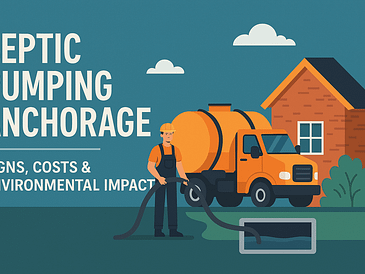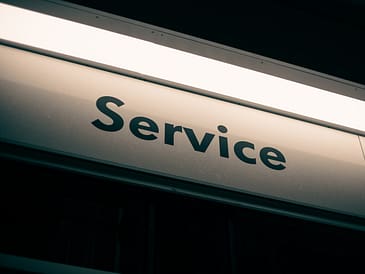As a homeowner with a septic system, it’s essential to understand the importance of proper septic tank maintenance. A well-functioning septic tank is crucial for the safe and efficient disposal of household wastewater, preventing environmental pollution and costly repairs. In this comprehensive guide, we’ll explore practical tips and strategies to help you keep your septic tank in top condition, ensuring a hassle-free and eco-friendly operation.
Understanding Your Septic System
Before delving into maintenance practices, it’s crucial to have a basic understanding of how your septic system works. A typical septic system consists of three main components: the septic tank, the drain field (also known as a leach field or soil absorption field), and the piping that connects them.The septic tank is a watertight, underground container that receives and stores household wastewater from sinks, toilets, showers, and washing machines. Within the tank, solid waste settles at the bottom, forming a layer of sludge, while lighter materials like grease and oils float to the top, creating a scum layer. The liquid waste, known as effluent, flows from the middle layer into the drain field, where it is gradually absorbed and filtered by the surrounding soil.
Regular Inspections and Pumping
One of the most critical aspects of septic tank maintenance is regular inspections and pumping. Over time, the sludge and scum layers in the tank accumulate, reducing the tank’s capacity and potentially causing backups or overflows. To prevent such issues, it’s recommended to have your septic tank inspected by a professional every three to five years and pumped when necessary.During an inspection, a professional will assess the tank’s condition, measure the sludge and scum levels, and determine if pumping is required. Typically, a septic tank should be pumped when the sludge and scum layers occupy one-third or more of the tank’s total capacity.
Proper Usage and Disposal
Proper usage and disposal practices are essential for maintaining a healthy septic system. Here are some guidelines to follow:
- Water Conservation: Excessive water usage can overload your septic system, leading to potential backups or drain field saturation. Conserve water by fixing leaks, installing low-flow fixtures, and limiting activities that generate large volumes of wastewater, such as doing multiple loads of laundry in a single day.
- Avoid Flushing Harmful Substances: Your septic tank relies on beneficial bacteria to break down organic matter. Flushing harsh chemicals, such as bleach, drain cleaners, paints, solvents, or pesticides, can disrupt this delicate ecosystem and potentially damage the system. Stick to mild, septic-safe cleaning products whenever possible.
- Dispose of Solid Waste Properly: Your septic tank is designed to handle human waste and biodegradable materials. Avoid flushing non-biodegradable items like feminine hygiene products, diapers, paper towels, or cat litter, as they can clog the system and disrupt the natural decomposition process.
- Limit Garbage Disposal Use: While garbage disposals are convenient, they can contribute to excessive solid waste buildup in your septic tank. Consider composting food scraps or disposing of them in the trash to reduce the strain on your system.
Maintaining the Drain Field
The drain field, or leach field, is an essential component of your septic system, responsible for dispersing and filtering the liquid effluent from the septic tank. To ensure its proper functioning, follow these guidelines:
- Avoid Compaction: Heavy vehicles or equipment can compact the soil in the drain field, reducing its ability to absorb and filter the effluent effectively. Avoid driving or parking on the drain field area.
- Divert Surface Water: Excessive surface water can saturate the drain field, leading to system failure. Ensure that downspouts, sump pumps, and other drainage systems are directed away from the drain field area.
- Maintain Vegetation: Grass and shallow-rooted plants help absorb moisture and prevent soil erosion in the drain field area. Avoid planting trees or shrubs with deep roots, as they can damage the drain field pipes.
- Periodic Inspection: Have a professional inspect your drain field periodically to check for signs of saturation, ponding, or other issues that may require attention or repair.
Septic Tank Additives and Alternatives
While septic tank additives and alternative treatments are widely marketed, their effectiveness and necessity are often debated. Many experts recommend relying on the natural bacterial ecosystem within the septic tank and avoiding the use of additives unless specifically recommended by a professional.If you choose to use septic tank additives, ensure they are environmentally friendly and approved for use in your area. Some alternatives, such as aerobic treatment units or alternative septic systems, may be suitable for specific situations but require professional installation and maintenance.
Preventive Measures and Landscaping
Proper landscaping and preventive measures can help protect your septic system and extend its lifespan. Consider the following tips:
- Landscaping: Plant grass or shallow-rooted plants over the septic tank and drain field area to help prevent soil erosion and provide access for future maintenance.
- Divert Roof Runoff: Ensure that downspouts and gutters direct rainwater away from the septic system to prevent excess water from saturating the drain field.
- Avoid Harsh Chemicals: Refrain from using harsh chemicals, such as pesticides, herbicides, or fertilizers, near the septic system, as they can contaminate the groundwater and harm the beneficial bacteria in the tank.
- Maintain Proper Grading: Ensure that the area around the septic system is properly graded to prevent water from pooling or flowing towards the system.
Professional Assistance and Emergencies
While regular maintenance and preventive measures can go a long way in keeping your septic system functioning properly, there may be times when professional assistance is required. If you notice any of the following signs, contact a licensed septic system professional immediately:
- Sewage odors around the septic tank or drain field
- Slow draining fixtures or frequent backups
- Gurgling sounds from plumbing fixtures
- Lush, green grass over the drain field (indicating a potential leak)
- Sewage surfacing in the yard or drain field area
In case of an emergency, such as a sewage backup or overflow, take immediate action to prevent further damage and potential health hazards. Contact a professional septic service provider for prompt assistance and follow their recommendations for safe cleanup and repair.By following these guidelines and maintaining a proactive approach to septic tank maintenance, you can ensure the longevity and efficient operation of your septic system, protect the environment, and avoid costly repairs or replacements. Remember, a well-maintained septic system not only safeguards your home but also contributes to a healthier and more sustainable community.





